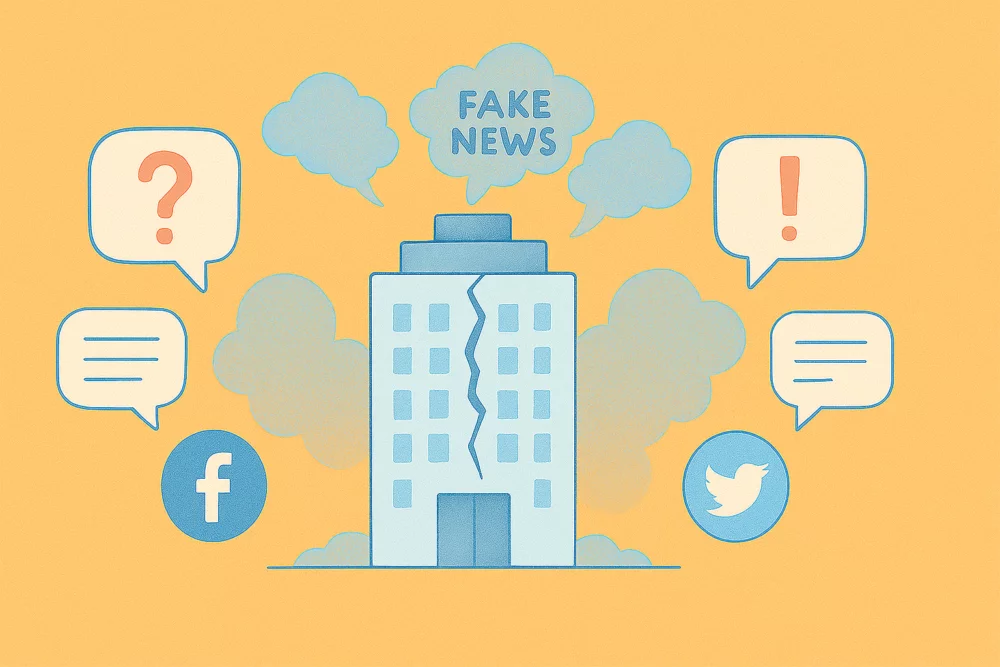"Generations have become one of the most powerful and performative lenses through which we view our society," said Vincent Coquebert in his 2019 book, "Millennial Burn-out" (Ed. Arkhé), as recalled by the "Echos Start" website at the same time.
To understand the appeal of brands to this generation, it is worth noting that today, Gen Z represents 12% of the French population and 30% globally, according to "L'ECHO touristique," with an estimated purchasing power of around 61 billion euros in France, according to a study by the OC&C Strategy Consultants.
Gen Z is so fascinating that it is examined from all angles. This is evidenced by the multitude of studies, like the astronomical number of Google searches (1,720,000,000 results) devoted to it.
Often misunderstood by preceding generations, Gen Z is perceived as ambivalent and paradoxical. Sometimes described as engaged, full of values and activists, and at other times categorized as lazy, rebellious, or attention-deficient. The list of characteristics attributed to them is long.
Brands, therefore, seek to find the best common denominator to address this generation. As Sana Atmane, a strategic planner at the Socialclub agency, points out, Gen Z is represented by "well-segmented micro-communities." Philippe Pioli-Lesesvre, Creative Director at The Good Company, even observes that "there seems to be a questioning of a universalist model that has nevertheless carried us for a long time."
To understand the appeal of brands to this generation, it is worth noting that today, Gen Z represents 12% of the French population and 30% globally, according to "L'ECHO touristique," with an estimated purchasing power of around 61 billion euros in France, according to a study by the OC&C Strategy Consultants.
Gen Z is so fascinating that it is examined from all angles. This is evidenced by the multitude of studies, like the astronomical number of Google searches (1,720,000,000 results) devoted to it.
Often misunderstood by preceding generations, Gen Z is perceived as ambivalent and paradoxical. Sometimes described as engaged, full of values and activists, and at other times categorized as lazy, rebellious, or attention-deficient. The list of characteristics attributed to them is long.
Brands, therefore, seek to find the best common denominator to address this generation. As Sana Atmane, a strategic planner at the Socialclub agency, points out, Gen Z is represented by "well-segmented micro-communities." Philippe Pioli-Lesesvre, Creative Director at The Good Company, even observes that "there seems to be a questioning of a universalist model that has nevertheless carried us for a long time."
Ultra-fragmented and connected generation
Is it necessary to target Gen Z at all costs? Communicators agree that this generation presents a real opportunity for brands. As Sana Atmane states, "the younger generations can embody renewal, a sort of modernity."
Consumers of today and tomorrow, members of this generation attract brands, which seek to seduce them, to gain their attention. Perceived as the Holy Grail in a flood of information, this attention even becomes "the main indicator sought by brands," according to Geoffroy Martin in an article for "Les Echos."
Moreover, one of Gen Z's characteristics sounds like a boon for advertisers: compared to its predecessors, it is generally less resistant to being "tracked" online. With one condition: to ultimately receive relevant and personalized advertisements. (La Réclame). And this, even in the era of laws governing data protection, GDPR, cookie blocking, or the recent Digital Service Act, which we discussed in a previous article.
According to Sana Atmane, "there is obviously a common ground of issues that this generation shares, but it lives at the same time in an ultra-fragmentation of interests, communities, and aesthetics." The strategic planner is accustomed to this generation. Within her agency, the collaborators are all more or less from Gen Z. She says, "You might think that limits differences, but not at all. This generation is multiple, and so are our opinions. For example, this is reflected in cultural, artistic, and advertising references. They are all 'Gen Z compliant' and yet they are very different."
Thus, this multitude of potential targets offers brands the opportunity to renew themselves and to reach, in one way or another, at least a part of Gen Z.
This diversity of interests, values, and preferences creates a fertile ground for innovation. Brands that seize this opportunity strategically can create more targeted marketing campaigns and thus establish meaningful connections with consumers of this Gen Z. This consumer-centric approach allows them to adapt to a generation that values authenticity and diversity.
Not targeting for the sake of targeting
However, Sana Atmane recalls that addressing Gen Z "is not just a question of codes or form, it is necessary to take the time to understand their expectations in depth and not to limit oneself to the surface."
"Targeting well means going beyond a set defined by birth dates," adds Philippe Pioli-Lesesvre, for whom "there is necessarily something crude in such a generalizing packaging." According to the creative director, "nothing is more off-putting for a young person than an old person pretending to be young. Admitting the gap is already being able to assess it, and who knows, maybe cross it."
Philippe Pioli-Lesesvre even warns of a possible perverse effect: "What can be counterproductive is to sacrifice years of carefully constructed brand images and values to go with the flow. The wind is changing, generations are aging, and Zs will soon be replaced by others. Following trends is good, but constancy has its merits too and is often rewarded in the long term." So beware of false connivance, according to some experts on the subject, who agree on one point: it is not necessary to seek to target Gen Z at all costs.
In any case, it is fascinating. In his book "Petite Poucette," philosopher Michel Serres said, "Their way of being, both connected, horizontal, and creative, pervades everything in our society. They are changing the way we work, travel, learn, consume. Does that make them better? I don't know, but they are different. Understanding them is crucial: our world is slipping into theirs."
Manon OTTOU GUILBAUD







![MEDIA ON THE MOVE – Summer Series – Finding your digital path [3/3]](https://mediaconnect.com/wp-content/uploads/2025/08/59487-1000x563.jpg.webp)
